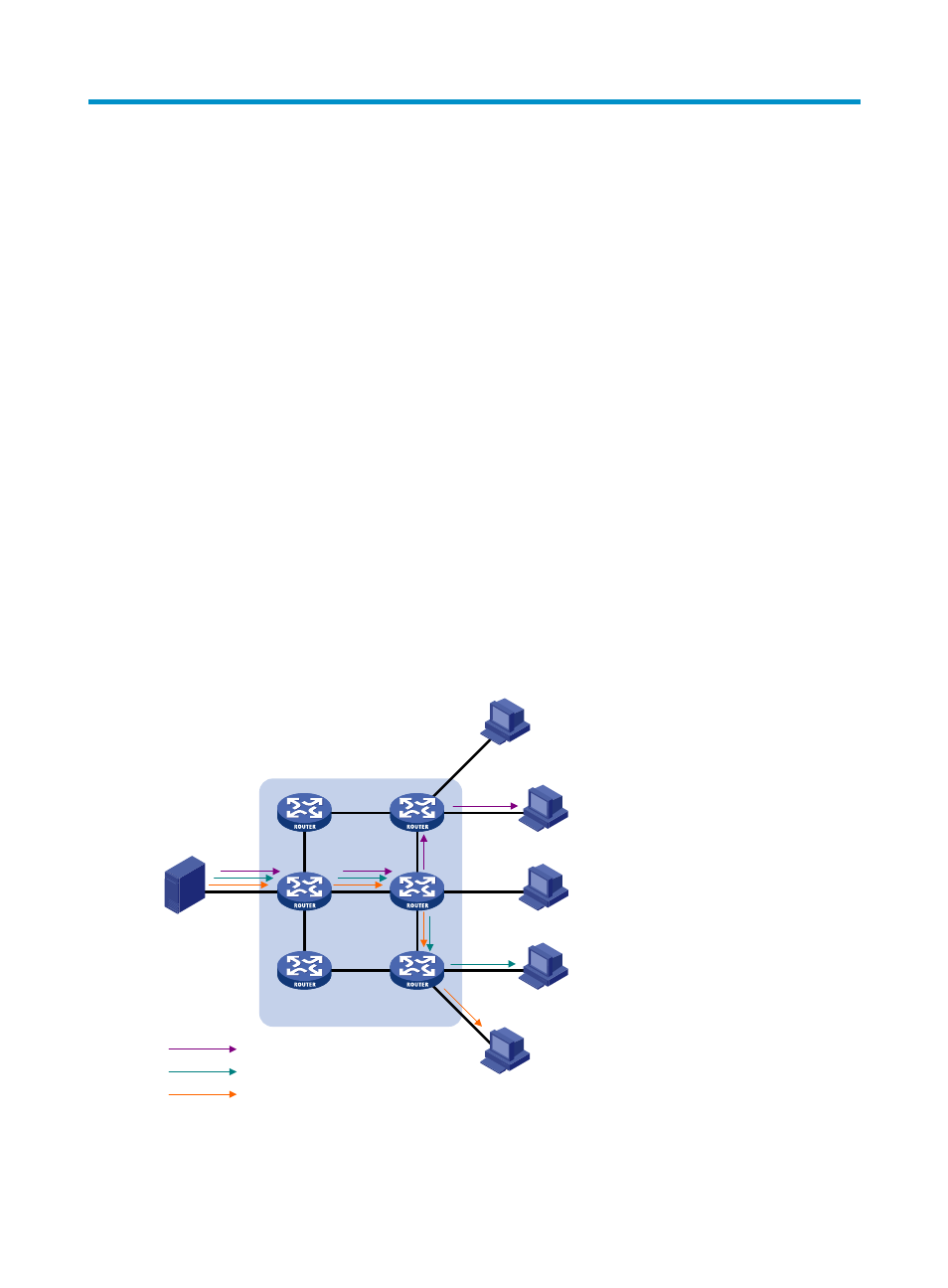Multicast overview, Introduction to multicast, Information transmission techniques – H3C Technologies H3C S12500 Series Switches User Manual
Page 17: Unicast

1
Multicast overview
Introduction to multicast
As a technique that coexists with unicast and broadcast, the multicast technique effectively addresses the
issue of point-to-multipoint data transmission. By enabling high-efficiency point-to-multipoint data
transmission over a network, multicast greatly saves network bandwidth and reduces network load.
By using multicast technology, a network operator can easily provide new value-added services, such as
live webcasting, web TV, distance learning, telemedicine, web radio, real-time video conferencing, and
other bandwidth-critical and time-critical information services.
Unless otherwise stated, the term "multicast" in this document refers to IP multicast.
The term "router" in this document refers to both routers and Layer 3 switches.
Information transmission techniques
The information transmission techniques include unicast, broadcast, and multicast.
Unicast
In unicast transmission, the information source must send a separate copy of information to each host that
needs the information.
Figure 1 Unicast transmission
In
, assume that Host B, Host D, and Host E need the information. A separate transmission
channel must be established from the information source to each of these hosts.
Source
Receiver
Receiver
Receiver
Host A
Host B
Host C
Host D
Host E
Packets for Host B
Packets for Host D
Packets for Host E
IP network